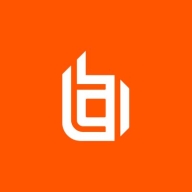


BeyondTrust Remote Support and Check Point Remote Access VPN are competitors in the remote access market. BeyondTrust seems to have the upper hand in remote support features and customization, while Check Point excels in VPN connectivity and integration within corporate ecosystems.
Features: BeyondTrust Remote Support offers customizable remote support pages, non-persistent agents, and secure remote sessions with MS Active Directory integration. It supports various devices and has a strong brand reputation. Check Point Remote Access VPN features seamless integration with existing infrastructure, multifactor authentication, and centralized management. It provides seamless connectivity and supports a wide range of devices and operating systems.
Room for Improvement: BeyondTrust faces issues with Linux and iOS compatibility and needs better voice communication features. Integration with Apple devices and declining support quality are concerns. Check Point is criticized for setup complexity, Linux client support, and scalability issues. It also needs improvement in update processes, integration, and licensing complexities.
Ease of Deployment and Customer Service: BeyondTrust offers flexible deployment options with praise for ease of use and efficient support, though some regions report slower assistance. Users are satisfied with the deployment process and support quality. Check Point, while offering robust support, is perceived as complex for setup, especially for new users, yet benefits from integration within existing infrastructures.
Pricing and ROI: BeyondTrust, although more expensive upfront, is cost-effective long term with a quick ROI through enhanced collaboration and efficiency, benefiting from a concurrent license model. Check Point is competitively priced, slightly expensive with potential needs for additional licenses, offering strong ROI through integration and security for remote access.
| Product | Market Share (%) |
|---|---|
| Microsoft Intune | 9.6% |
| Check Point Remote Access VPN | 2.3% |
| BeyondTrust Remote Support | 3.3% |
| Other | 84.8% |



| Company Size | Count |
|---|---|
| Small Business | 116 |
| Midsize Enterprise | 46 |
| Large Enterprise | 152 |
| Company Size | Count |
|---|---|
| Small Business | 16 |
| Midsize Enterprise | 9 |
| Large Enterprise | 18 |
| Company Size | Count |
|---|---|
| Small Business | 40 |
| Midsize Enterprise | 31 |
| Large Enterprise | 33 |
Microsoft Intune provides centralized management of mobile devices and applications, ensuring security, compliance, and productivity through integration with Microsoft services like Microsoft 365 and Azure Active Directory.
Organizations use Intune for managing mobile devices and applications, enhancing security and compliance across platforms. With features like single sign-on, conditional access, and zero-touch deployment via Autopilot, it facilitates efficient operations. Intune's scalability, easy enrollment, and capabilities such as remote wipe support diverse device management, offering robust data protection and efficient operation. Despite its features, improvement areas include reporting, compatibility with non-Microsoft devices, and better support for macOS and Linux devices.
What are the key features of Microsoft Intune?
What benefits should users look for in reviews?
In industries such as finance, healthcare, and education, Microsoft Intune is implemented to ensure secure and compliant device management. Companies leverage its capabilities to deploy security policies and manage both corporate-owned and BYOD environments, facilitating a unified approach to data protection and compliance.
BeyondTrust Remote Support is software built to help organizations gain access to and support nearly any remote computer or mobile device with a single solution. BeyondTrust Remote Support works across Windows, Mac, and Linux and gives you access and control whether a device is on or off the network.
BeyondTrust Remote Support Features
BeyondTrust Remote Support has many valuable key features. Some of the most useful ones include:
BeyondTrust Remote Support Benefits
Some of the benefits of using BeyondTrust Remote Support include:
Reviews from Real Users
Below are some reviews and helpful feedback written by BeyondTrust Remote Support users.
A Cybersecurity Architect at a tech vendor says, “The most valuable features are the ease of deployment, performance, pre and post-sales support, the vast majority of the localization they have done and the solution provider that they support. You can't compete with TeamViewer or any other similar products. It's completely in a class of its own.”
An Enterprise Service Desk Systems Manager at a manufacturing company comments, "Screen sharing, in general, is pretty important for a service desk. Another thing that I have found to be very helpful is that you can also do screen sharing on a cell phone. When people have an issue with their cell phone, it is ordinarily very difficult to troubleshoot the issue. With BeyondTrust Remote Support, you can share the cell phone screen, and somebody can take a look at it remotely. I am not sure if other competing solutions offer this feature. It is pretty user-friendly. It is also good performance-wise."
PeerSpot user Mark B., Sr VP of Business Operations at Networking Technologies and Support, Inc., explains that he thinks the solution is “Great for delivering end-user support, good at recording sessions, and very stable.
Remote secure access VPN is a solution that provides users with remote access to an organization’s network. The host may have VPN client software loaded or use a web-based client. The solution leverages security features like multi-factor authentication, endpoint scanning, and encryption of all data in motion.
Check Point Remote Access VPN provides individuals with protected and efficient access to a company network from anywhere. This strategy fosters collaboration and connectivity between distributed teams and offices.
Features of Check Point Remote Access VPN
Key features of the secure remote access VPN include:
The system enforces endpoint security with endpoint compliance. It monitors and verifies the security status of each endpoint and reports back to the Security Gateway. The gateway, in turn, checks the compliance level and directs the connectivity to the right resources.
Users can deploy the Remote Access VPN in one of three ways:
Remote Access VPN is centrally managed. The centralized console enables management and enforcement of policies with a single log-in.
The Remote Access VPN has a web portal that users can use to connect securely to corporate applications, such as web-based resources, file-sharing, and email. Administrators can customize the web portal to match the brand identity.
Remote Access VPN offers two choices for remote access:
The authentication features include password management, RADIUS challenge/response, CAPI software, and hardware tokens. P12 certificates, and SecurID.
The system establishes a VPN tunnel on demand. It also re-arranges connections when roaming. The tunnel can automatically tear down when the user is on the corporate LAN.
There are several connection features, such as Hotspot detection, office mode IP, split tunneling, and automatic fallback to HTTPS.
Benefits of Check Point Remote Access VPN
One of the key advantages of Remote Access VPN is that it provides remote workers with a secure way to connect to a corporate network from any device, including their personal devices. The data encryption in transit enables them to securely access the resources they need for their tasks.
It also provides IT support and technicians with a faster way to troubleshoot software issues. In the case of a ticket, IT doesn’t need to go to the server location to fix the problem but can troubleshoot it remotely.
A remote secure access VPN is also an affordable alternative for small and medium-sized businesses, without requiring expensive infrastructure.
Reviews from Real Users
A Global IT Network and Security Service Senior Specialist at a manufacturing company who uses Check Point Remote Access VPN says, "I found the MEP feature the most valuable. This has improved users' latency allowing the users to connect to the nearest Azure Check Point VM."
"Organizations that already use the Check Point NGFW Solution do not require any additional hardware, which makes the implementation straightforward and reduces the time to go live," explains Basil D., Senior Manager at a financial services firm.
Manuel B., a Voice and data infrastructure specialist at a tech services company, says that "The IPSec VPN, Mobile Access, and Identity Awareness are three of the blades with which we have been working with since the pandemic. This has given us great mobility, making our network more dynamic."
We monitor all Remote Access reviews to prevent fraudulent reviews and keep review quality high. We do not post reviews by company employees or direct competitors. We validate each review for authenticity via cross-reference with LinkedIn, and personal follow-up with the reviewer when necessary.